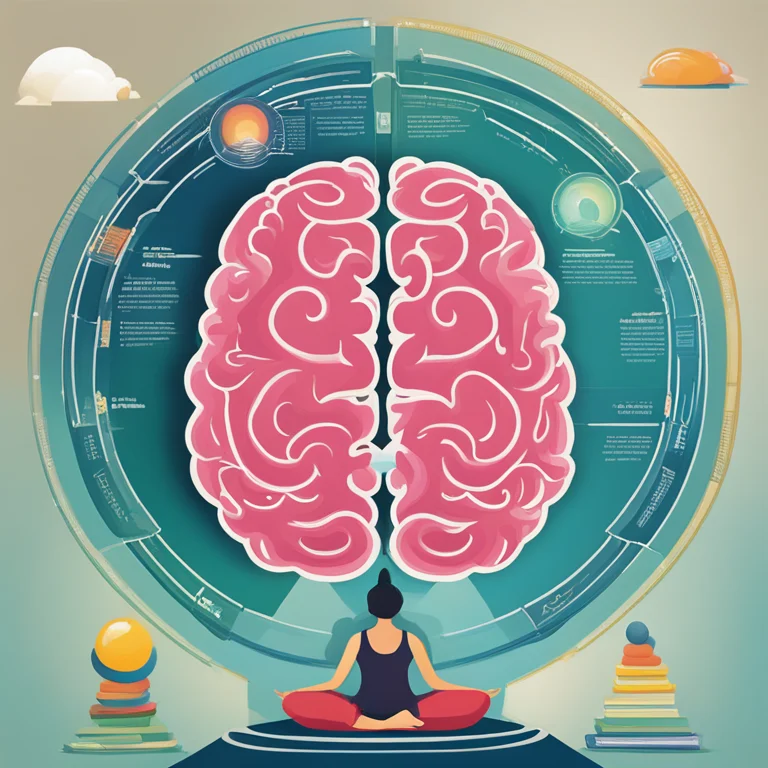
The Impact of Meditation on Your Brain
Discover how meditation reshapes your brain, enhancing mental health and cognitive function.
article by Hina Kurosawa
The Neuroscience of Meditation
Meditation has long been embraced for its calming effects, but only recently have we begun to understand its impact on the brain. With modern neuroimaging techniques, researchers can observe changes in brain structure and function resulting from regular meditation practice. Studies have found that meditation can actually alter brainwaves, promoting a state of relaxation and attentiveness that may carry over into our daily lives. This supports the longstanding claims that meditation not only provides momentary peace but also engenders lasting mental resilience.

Cortical Thickening: A Physical Transformation
Notably, meditation has been linked to cortical thickening in areas of the brain associated with attention, interoception, and sensory processing. The prefrontal cortex, for example, shows increased thickness in meditators, which correlates with enhanced cognitive functions such as decision-making and problem-solving. Additionally, the insula, a region tied to self-awareness and empathy, becomes more pronounced in individuals who meditate regularly. These physical changes suggest that meditation not only influences our thoughts and feelings but also induces tangible changes in our brain's architecture.

Stress Reduction and the Amygdala
The amygdala, our brain's threat-detection center, also responds to meditation. Evidence suggests that meditation can decrease amygdala activity and reduce its connectivity with other brain regions involved in stress and anxiety. As a result, regular meditators often experience lower stress levels and an improved ability to manage anxiety, contributing to a more balanced emotional state. This calming effect of meditation on the amygdala is akin to turning down the volume on our stress responses, offering us a chance to approach life's challenges with greater equanimity.

Boosting Memory and Attention
The benefits of meditation extend to memory and attention as well. Regular practice has been shown to improve performance on tasks requiring sustained attention and to increase the thickness of brain regions involved in memory processes. By fostering a state of focused relaxation, meditation can help us remain attentive over longer periods and improve our capacity for memory retention. For those looking to enhance their cognitive abilities, meditation proves to be a valuable tool within an intellectual toolbox.

Meditation's Role in Neuroplasticity
Neuroplasticity, the brain's ability to form new neural connections throughout life, is greatly influenced by our experiences and activities—including meditation. As we meditate, we strengthen neural pathways associated with positive emotions and diminish those linked to negative mental patterns. This rewiring of the brain allows for more adaptive responses to stress and reduces the impact of harmful stimuli. Thus, meditation not only transforms our current state of mind but can also shape our brain for future resilience.
Long-term Benefits and Mental Health
Long-term meditation practitioners show remarkable differences in their brain structure and function, which align with increased psychological well-being. Chronic illnesses like depression, anxiety disorders, and even pain response can be positively influenced by the regular practice of meditation. By fostering a state of mindfulness, where one is fully present and engaged with the current moment, meditation helps in dissolving the patterns of rumination and worry that often plague our mental health.
Published: 1/9/2024
Modified: 1/9/2024
More predictions
Come back here soon to learn more about yourself and your future


The Harmony of Meditation & Sleep
Discover how meditation enhances sleep quality and overall well-being through mindful practices and relaxation techniques.


The Serenity Sojourn: Embrace a Meditation Retreat
Delve into the tranquility of a meditation retreat and rejuvenate your mind, body, and soul with practices that transcend time.


The Tranquil Bridge: Meditation's Impact on Sleep Quality
Discover how meditation can enhance sleep quality, weaving a path to better rest and well-being